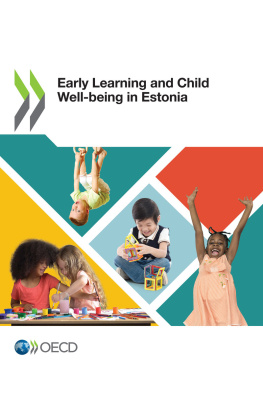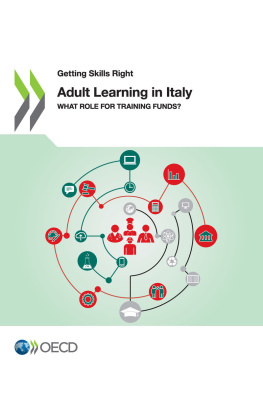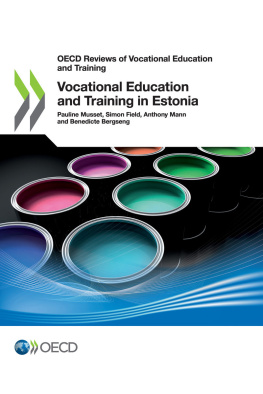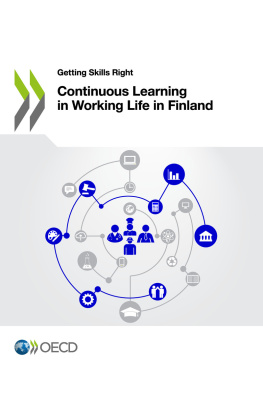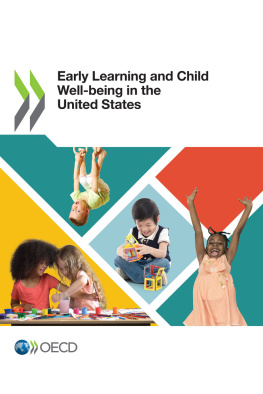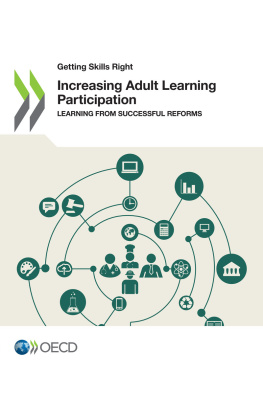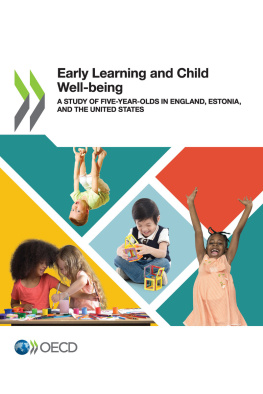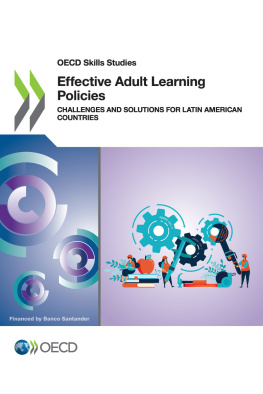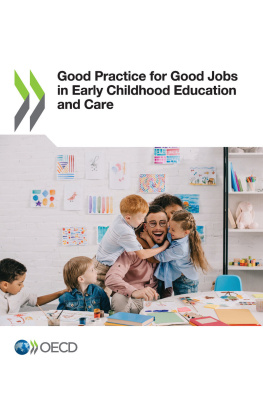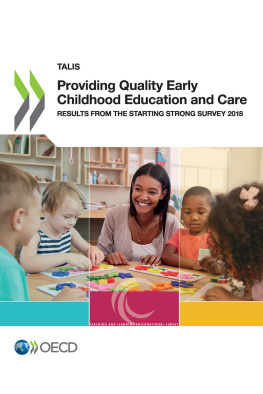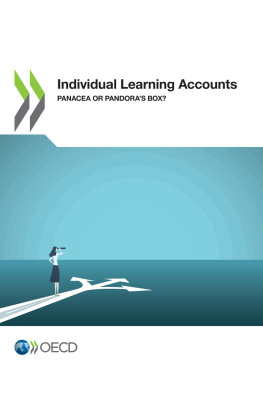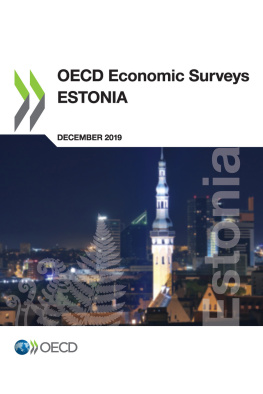OECD - Early Learning and Child Well-being in Estonia
Here you can read online OECD - Early Learning and Child Well-being in Estonia full text of the book (entire story) in english for free. Download pdf and epub, get meaning, cover and reviews about this ebook. year: 2020, publisher: OECD Publishing, genre: Children. Description of the work, (preface) as well as reviews are available. Best literature library LitArk.com created for fans of good reading and offers a wide selection of genres:
Romance novel
Science fiction
Adventure
Detective
Science
History
Home and family
Prose
Art
Politics
Computer
Non-fiction
Religion
Business
Children
Humor
Choose a favorite category and find really read worthwhile books. Enjoy immersion in the world of imagination, feel the emotions of the characters or learn something new for yourself, make an fascinating discovery.
Early Learning and Child Well-being in Estonia: summary, description and annotation
We offer to read an annotation, description, summary or preface (depends on what the author of the book "Early Learning and Child Well-being in Estonia" wrote himself). If you haven't found the necessary information about the book — write in the comments, we will try to find it.
OECD: author's other books
Who wrote Early Learning and Child Well-being in Estonia? Find out the surname, the name of the author of the book and a list of all author's works by series.
Early Learning and Child Well-being in Estonia — read online for free the complete book (whole text) full work
Below is the text of the book, divided by pages. System saving the place of the last page read, allows you to conveniently read the book "Early Learning and Child Well-being in Estonia" online for free, without having to search again every time where you left off. Put a bookmark, and you can go to the page where you finished reading at any time.
Font size:
Interval:
Bookmark:
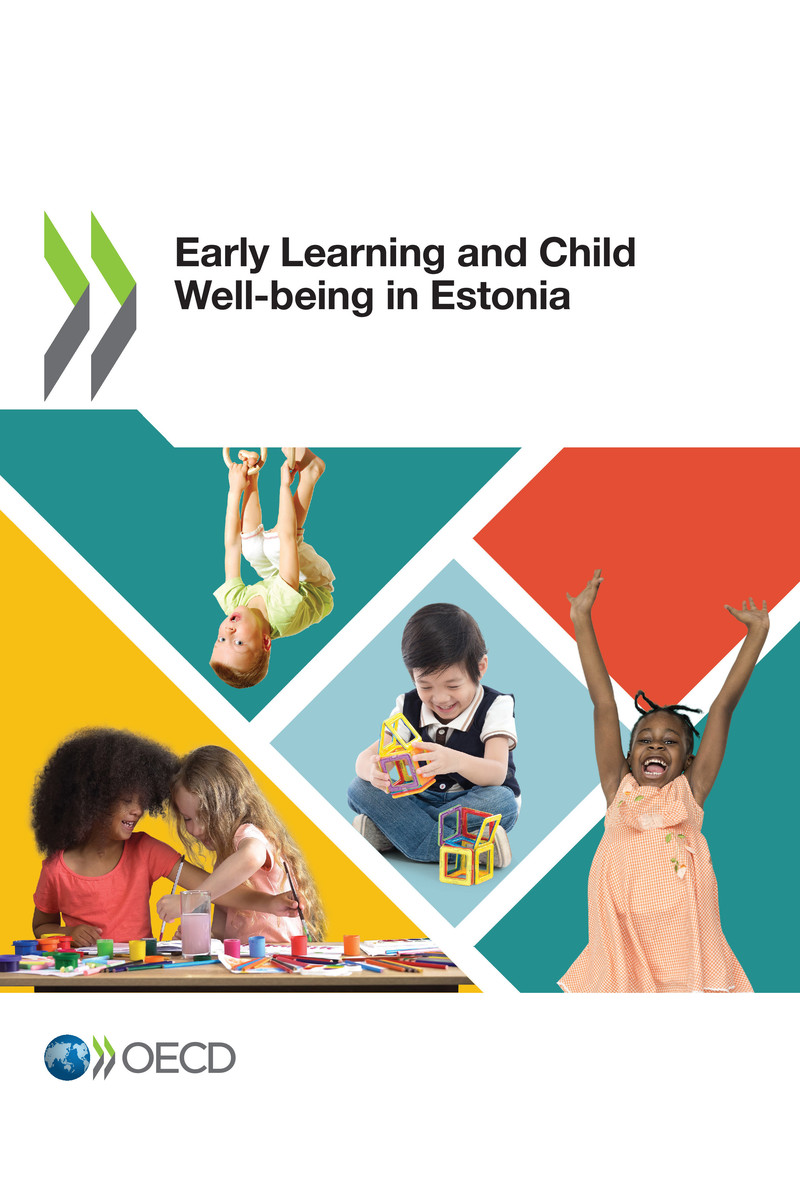
OECD (2020), Early Learning and Child Well-being in Estonia , OECD Publishing, Paris, https://doi.org/10.1787/15009dbe-en .
The information in this document with reference to Cyprus relates to the southern part of the Island. There is no single authority representing both Turkish and Greek Cypriot people on the Island. Turkey recognises the Turkish Republic of Northern Cyprus (TRNC). Until a lasting and equitable solution is found within the context of the United Nations, Turkey shall preserve its position concerning the Cyprus issue.
The Republic of Cyprus is recognised by all members of the United Nations with the exception of Turkey. The information in this document relates to the area under the effective control of the Government of the Republic of Cyprus.
Estonia is an international education leader, achieving high levels of performance and equity among students. The Estonian education system is striking in its openness to learning and improving. Education leaders and practitioners in Estonia embrace data and other evidence as a means for continual improvement. Systems like Estonia that can learn, can adapt and can continue to learn will inevitably serve their students well. They will also postion themselves well for the opportunities and the challenges of the future.
Estonia places great priority on childrens early years, in addition to students later education. The early childhood education and care system in Estonia is coherent and holistic, emphasizing childrens social-emotional development and well-being. At the same time, early years provision is firmly part of the Estonian education system as a whole, rather than separate and unrelated. To better understand childrens trajectories through the education system, Estonia has supported OECD efforts to collect comparative data on childrens early learning.
Estonia was one of three OECD countries that participated in the International Early Learning and Child Well-being Study. The study provides policy makers, education leaders, parents and the wider community with insights on how well five-year-old children in Estonia are faring. The study moves beyond speculation and beliefs, and enables children to show us how they are doing. The findings are enriched by comparisons with children in England (United Kingdom) and children in the United States.
The study investigated how well five-year-old children were developing across the range of skills they need to be well-positioned to succeed in education and grow up into happy, healthy and responsible citizens. These skills include both early cognitive development and social-emotional development. Children without this balance of skills will struggle to do well in school and in other areas of their lives.
The study highlights early differences between groups of children, such as between boys and girls and between children from advantaged and disadvantaged families. This helps us to see how we can better support children and their families, both in the earliest years and in the first years of schooling. Education systems that orient their priorities from an institutional lens to childrens actual needs will have greater success overall and will be better able to achieve improved equity.
Children love to learn and supportive, caring environments help them to do so. Our job is to ensure we are providing such environments.

Andreas Schleicher
Director for the Directorate for Education and Skills
Special Advisor on Education Policy to the Secretary General
The International Early Learning and Child Well-being Study (IELS) was a collaborative effort between participating countries and the OECD secretariat.
The development of this report was guided by Andreas Schleicher and Yuri Belfali and managed by Rowena Phair. The lead author of the report was Javier Suarez-Alvarez, with chapters contributed by Lauren Kavanagh (). The publication was edited by Elizabeth Zachary and designed by Fung Kwan Tam. Administrative support was provided by Valentine Bekka and Matthew Gill. Communications support was provided by Rachel Linden.
To support the technical implementation of IELS, the OECD contracted an international consortium of institutions, led by Maurice Walker at the Australian Council for Educational Research (ACER). The consortium also included the International Association for the Evaluation of Educational Achievement (IEA), led by Anja Waschk, and cApStAn, under the lead of Roberta Lizzi.
To help to ensure that the study was rigorous and valid, IELS was guided and supported in its work by a Technical Advisory Group (TAG) and a Measurement Advisory Group (MAG). The members of the TAG were Iram Siraj (Chair), Rosemary Cahill, and Szilvia Papp. The members of the MAG were Ray Adams, Alla Berezner, Dan Cloney, Wolfram Schulz, Maurice Walker, and Nathan Zoanetti.
This report was prepared in close collaboration with the Estonia IELS team, of which Tiina Peterson from the Estonian Ministry of Education and Research was project lead. Anne-Mai Meesak and Lauri Veski, from Innove, provided feedback on earlier chapter drafts; their help in improving this volume is gratefully acknowledged.
The first five years of a childs life can be a period of great opportunity, and great vulnerability. Children learn at a faster rate than at any other time in their lives, building the foundations for their future cognitive and social-emotional skills development. Building advanced cognitive and social-emotional skills is far more difficult and less effective at later ages without a strong early foundation. Education systems that wish to achieve a step-change in student outcomes are well advised to increase their focus on the quality, responsiveness and effectiveness of their early years policies for children.
Font size:
Interval:
Bookmark:
Similar books «Early Learning and Child Well-being in Estonia»
Look at similar books to Early Learning and Child Well-being in Estonia. We have selected literature similar in name and meaning in the hope of providing readers with more options to find new, interesting, not yet read works.
Discussion, reviews of the book Early Learning and Child Well-being in Estonia and just readers' own opinions. Leave your comments, write what you think about the work, its meaning or the main characters. Specify what exactly you liked and what you didn't like, and why you think so.

